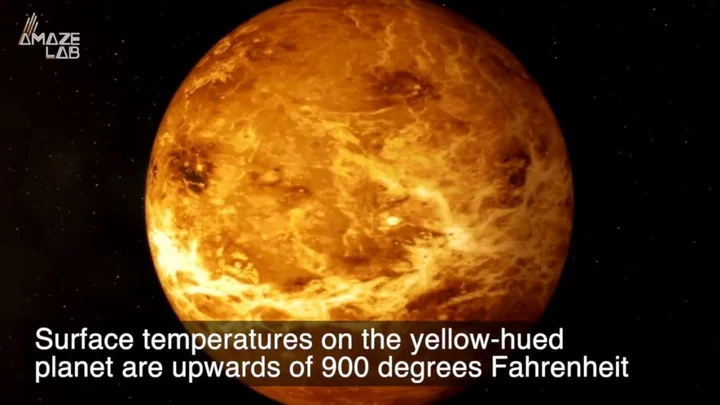Life forms could potentially be able to survive in the conditions in the clouds above Venus – although, to be honest, we don’t want to be the ones who go there and have to test this theory out.
Venus has fascinated scientists for years due to the relative similarities between the planet and Earth.
The surface of Venus now is around 475 degrees Celsius, but its geology resembled Earth’s before the greenhouse effect took hold over millions of years.
To add to that, the surface is also covered in sulphuric acid, so the chances of it being able to foster life is slim to say the least.
Sign up to our free Indy100 weekly newsletter
However, new research has looked into the conditions in the clouds above the surface and the findings have been published in the journal Astrobiology.
The key point revolves around the presence of the biosignature gas phosphine, which is often identified as a sign of life. It also posits the idea that potential life forms on the planet could use sulphuric acid the way life forms on Earth use water.
The paper reads: "Although we consider the prospects for finding life on Venus to be speculative, they are not absent.
"The clouds can support a biomass that could readily be detectable by future astrobiology-focused space missions from its impact on the atmosphere."
It goes on: “We conclude that Venus' aerial biosphere must be much smaller than the Earth's. However, even such scarce, strictly aerial life could leave a detectable mark on the chemistry of the atmosphere in the clouds…
“We conclude that terrestrial precedent exists for mechanisms that could keep at least some life-containing cloud particles aloft on Venus, and it prevents the entire ecology from inevitably falling to its doom in the hot, lower layers of the atmosphere.”
Have your say in our news democracy. Click the upvote icon at the top of the page to help raise this article through the indy100 rankings.









